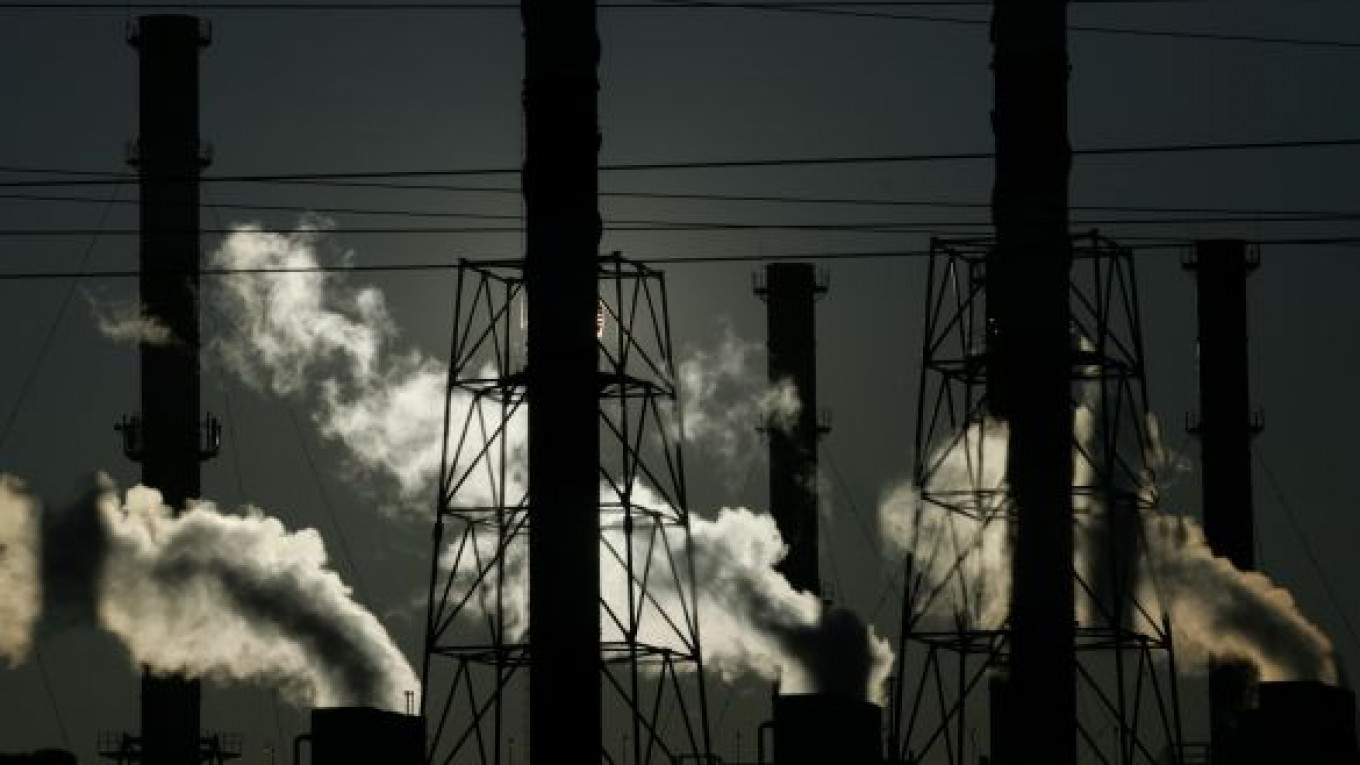President Vladimir Putin could make an announcement on an internal carbon trading system by the end of the month.
Several ministries are involved in drawing up plans to introduce internal carbon caps and a trading system as an alternative to the Kyoto Protocol commitments that the country refused to renew at the Durban climate conference last December.
A carbon-trading consultant who has been closely involved in cross-agency discussions said an announcement could be made in the coming weeks.
"It is possible Putin will say something at the Sochi Investment Conference later this month," the expert told The Moscow Times.
But the source, who asked not to be named because he was not authorized to speak to the press, stressed that the talks are "ongoing" and that it could take months to cobble together the details of such a trading mechanism.
"There is no consolidated position either among the business community or in government," he said.
A cross-agency working group headed by the Economic Development Ministry has been examining proposals since April to set an internal, non-internationally binding target for reducing emissions by 2020.
But the exact size of the reduction target, which could be around 20 or 25 percent, and the mechanism for achieving it have yet to be decided.
Earlier, senior government officials denied that ministers were preparing an imminent about-face on Kyoto.
Presidential adviser Alexander Bedritsky, who backs an internal carbon-trading system, said last week that turning down Kyoto was "a political decision at the highest level," and would not be reversed, RIA-Novosti reported.
His comments followed reports that the government was about to give in to lobbying from the business community and sign up to the second implementation period, which begins on Jan. 1, 2013.
Russia joined Canada and Japan in refusing to sign up to a second implementation period of the Kyoto Protocol at the Durban climate conference in December on the grounds that any treaty that does not impose commitments on the United States and China — who together are thought to contribute more than 40 percent of global emissions — would be "meaningless."
Representatives of both the Russian Union of Entrepreneurs and Industrialists and Delovaya Rossiya, the country's two main business associations, expressed frustration at the potential loss of revenue from joint implementation projects, under which firms receive tradable carbon credits for lowering their emissions.
It has been estimated that Russian companies have earned as much as 1.5 billion euros from the carbon market. The price for Emission Reduction Units, or ERUs, the tradable commodities that represent carbon reduction, has fallen dramatically in the past year on the back of over supply and economic difficulties in the European Union.
Russia was granted 300 million ERUs under Kyoto. The Russian Registry of Carbon Units said in August that 79 million ERUs had been issued since the beginning of the joint implementation program under Kyoto, up from just 28 million as of Dec. 31, 2011.
Russia ratified the Kyoto Protocol in 2004, and the agreement came into force the following year. Because of the industrial downturn following the Soviet collapse, Russia automatically exceeded its commitment to reduce emissions relative to 1990 levels (in 2010 Russia's emissions were 33.75 percent lower than 1990 levels).
Related articles:
A Message from The Moscow Times:
Dear readers,
We are facing unprecedented challenges. Russia's Prosecutor General's Office has designated The Moscow Times as an "undesirable" organization, criminalizing our work and putting our staff at risk of prosecution. This follows our earlier unjust labeling as a "foreign agent."
These actions are direct attempts to silence independent journalism in Russia. The authorities claim our work "discredits the decisions of the Russian leadership." We see things differently: we strive to provide accurate, unbiased reporting on Russia.
We, the journalists of The Moscow Times, refuse to be silenced. But to continue our work, we need your help.
Your support, no matter how small, makes a world of difference. If you can, please support us monthly starting from just $2. It's quick to set up, and every contribution makes a significant impact.
By supporting The Moscow Times, you're defending open, independent journalism in the face of repression. Thank you for standing with us.
Remind me later.






